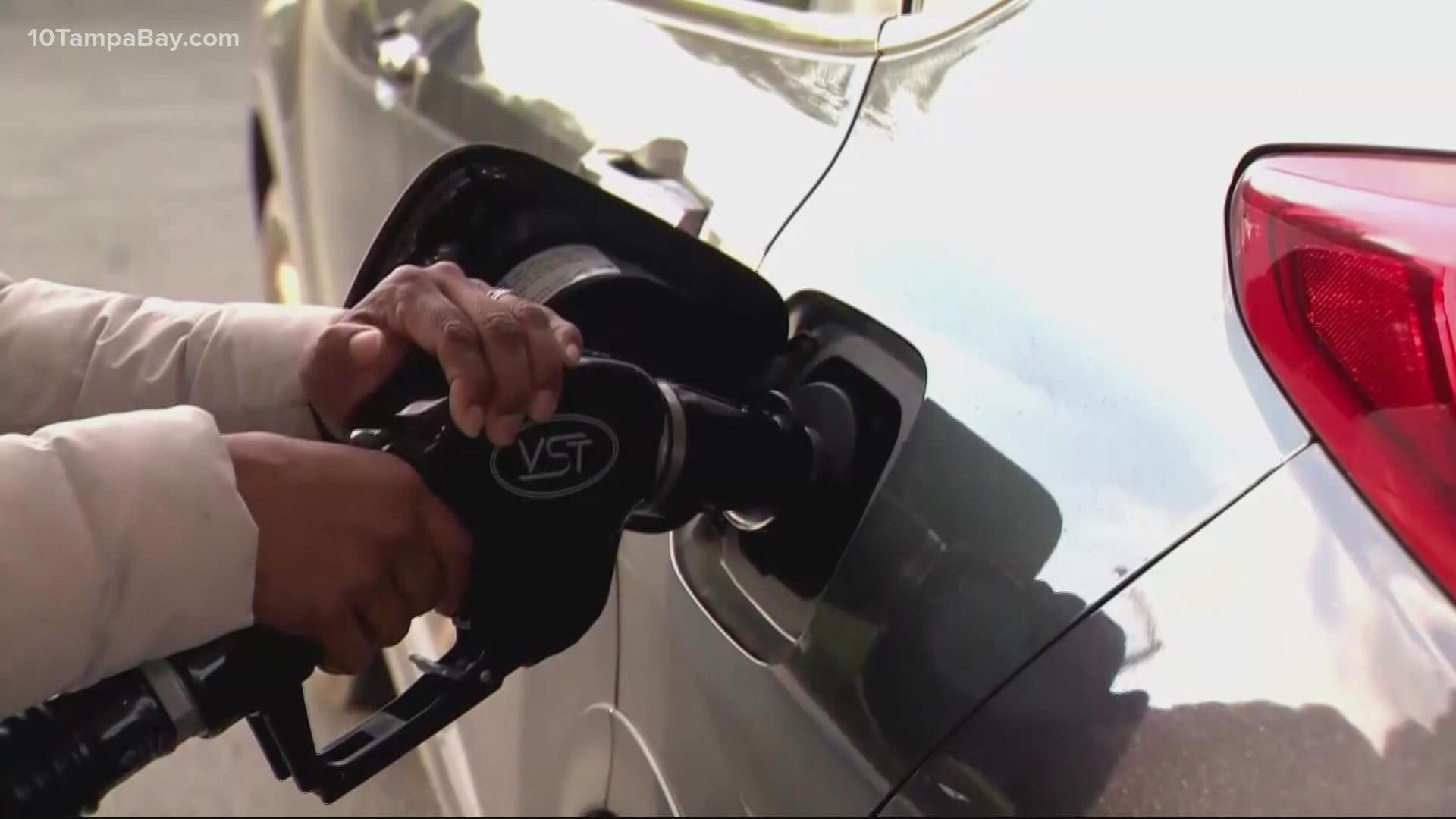ST. PETERSBURG, Fla — In the latest push to lower the nation's gas prices, President Joe Biden is looking to make E15 gasoline available this summer to increase fuel supply.
"The environmental protection agency is planning to issue an emergency waiver. Here's what it means, E15 is about 10 cents a gallon cheaper than E10," Biden said during his announcement Tuesday.
But according to gas experts, actually finding E15 around Tampa Bay and the state won't be easy.
"It's sold at about 2,300 gas stations around the country or about 1.5% of gas stations nationwide. About 10% of retailers here in Florida have them, so it's going to be more difficult to find this grade of gasoline," Mark Jenkins with AAA said.
While the president is hopeful the 10 cents off a gallon will help lessen the burden on Americans' wallets, economists believe the change over the next few months might not help very much.
"In the grand scheme of things, every little bit helps, but in fact, it's not going to have a significant impact," Tom Smith with Florida Gulf Coast University said.
The professor of finance says the extra ethanol being mixed in with petroleum will lower fuel efficiency. That could mean negative impacts on engines or an engine's performance and lead to more maintenance on your vehicle.
"When you start to factor in those costs, which are obviously somewhat hidden from the actual pump price, it's not clear that it will make a significant difference," Smith said.
The other prominent impact on the Tampa Bay area is a bump in our carbon footprint through increased emissions. Every time ethanol is burned, emissions increase 25%, according to FGCU Water School Professor Serge Thomas.
"It will accelerate things, yes it's possible," Thomas said.
Higher emissions mean our climate will change quicker than expected and accelerate sea-level rise, too. It just depends on how long the E15 waiver lasts.
"Yes, technically it will impact it. Are we gonna be able to quantify and measure it, and perceptively feel the effects of it? Not that obvious," Thomas said.
E15 was legal year-round until 2011 when the EPA moved to ban it in the summer.

